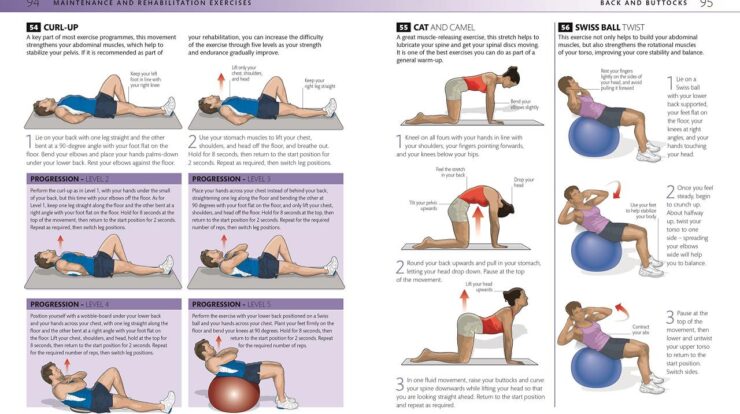
Tired of pricey dental visits for gum disease? Join us as we delve into the world of how to cure gum disease without a dentist! From home remedies to lifestyle tweaks, we’ve got you covered. Let’s embark on a journey to healthier gums, naturally.
Our comprehensive guide will arm you with everything you need to know, from natural remedies that target specific gum disease symptoms to essential oral hygiene practices that keep those pearly whites sparkling. So, sit back, relax, and let’s get those gums in tip-top shape!
Home Remedies
Gum disease, also known as periodontal disease, is a common oral health issue that can lead to inflammation, bleeding, and even tooth loss. While it’s always best to consult a dentist for proper diagnosis and treatment, there are several natural remedies that can help alleviate symptoms and support oral health.
If you’re dealing with gum disease, don’t despair! While it’s typically recommended to see a dentist for treatment, there are some natural remedies that may help. Check out this guide to learn how to cure gum disease without a dentist using simple, effective methods.
You’ll be amazed at the results!
Home remedies for gum disease work by targeting specific aspects of the condition, such as inflammation, bacteria, and plaque buildup. Some of the most effective remedies include:
Saltwater Rinse
- Saltwater rinses help reduce inflammation and kill bacteria in the mouth.
- Mix 1/2 teaspoon of salt in a cup of warm water and rinse your mouth for 30 seconds.
- Repeat several times a day for best results.
Turmeric
- Turmeric is a natural antiseptic and anti-inflammatory agent.
- Mix 1 teaspoon of turmeric powder with 1/4 cup of warm water to form a paste.
- Apply the paste to your gums and leave it on for 10-15 minutes before rinsing.
Tea Tree Oil, How to cure gum disease without a dentist
- Tea tree oil is a potent antibacterial and antifungal agent.
- Dilute 2-3 drops of tea tree oil in a cup of water and rinse your mouth for 30 seconds.
- Use tea tree oil mouthwash 1-2 times a day for optimal benefits.
Aloe Vera
- Aloe vera has anti-inflammatory and antibacterial properties.
- Apply pure aloe vera gel directly to your gums and leave it on for 10-15 minutes before rinsing.
- Repeat several times a day to reduce inflammation and promote healing.
Green Tea
- Green tea contains antioxidants that help fight bacteria and inflammation.
- Brew a cup of green tea and let it cool.
- Rinse your mouth with the green tea for 30 seconds several times a day.
While home remedies can be helpful in alleviating gum disease symptoms, it’s important to note that they are not a substitute for professional dental care. Regular dental checkups and cleanings are crucial for maintaining good oral health and preventing gum disease from progressing.
Oral Hygiene Practices
Maintaining impeccable oral hygiene is paramount in preventing and managing gum disease. Implementing proper brushing and flossing techniques, coupled with the judicious use of mouthwash, tongue cleaners, and other oral hygiene aids, plays a pivotal role in maintaining optimal oral health.
Brushing Techniques
Effective brushing involves employing a soft-bristled toothbrush and fluoride toothpaste at least twice daily. The correct technique entails holding the brush at a 45-degree angle to the gum line and gently moving it in small circular motions. Pay meticulous attention to the areas where the teeth meet the gums, as plaque and bacteria tend to accumulate there.
Flossing
Flossing is equally crucial, as it helps remove plaque and food particles from between the teeth, where a toothbrush cannot reach. Use unwaxed floss and gently guide it between each tooth, making sure to curve it around the base of the tooth to effectively dislodge debris.
Mouthwash
Mouthwash can supplement brushing and flossing by reducing bacteria and plaque buildup. Choose a mouthwash that contains fluoride and antiseptic ingredients. Rinse thoroughly for at least 30 seconds, twice daily, after brushing and flossing.
Tongue Cleaning
The tongue harbors bacteria that can contribute to gum disease. Regularly cleaning the tongue with a tongue scraper or toothbrush helps remove bacteria and improve oral hygiene.
Other Oral Hygiene Aids
Additional oral hygiene aids, such as interdental brushes, water flossers, and electric toothbrushes, can further enhance oral hygiene. Consult with your dentist to determine the most appropriate aids for your individual needs.
Dietary Modifications

Dietary choices significantly influence gum health. A balanced diet rich in nutrients and antioxidants can promote healthy gums, while certain foods and beverages can contribute to gum disease. Here’s a guide to dietary modifications that can support gum health:
Nutrient-Rich Foods for Gum Health
- Vitamin C:Citrus fruits, berries, and leafy greens are excellent sources of vitamin C, an antioxidant that strengthens the immune system and protects gum tissues from damage.
- Vitamin D:Fatty fish, eggs, and fortified milk provide vitamin D, which plays a role in regulating the immune system and reducing inflammation.
- Calcium:Dairy products, leafy greens, and fortified foods are rich in calcium, essential for maintaining strong teeth and bones, including the jawbone that supports the gums.
- Antioxidants:Fruits and vegetables contain antioxidants that neutralize free radicals, reducing inflammation and protecting gum tissues from damage.
Foods to Avoid or Limit
- Sugary foods and drinks:Sugar feeds bacteria in the mouth, leading to plaque formation and gum inflammation.
- Acidic foods and drinks:Citrus fruits, vinegar, and carbonated beverages can erode tooth enamel and weaken gums.
- Sticky foods:Foods like candy and dried fruit can cling to teeth, providing a breeding ground for bacteria.
li> Processed foods:These often contain added sugars, unhealthy fats, and preservatives that can contribute to gum inflammation.
Lifestyle Factors: How To Cure Gum Disease Without A Dentist
Lifestyle factors can significantly influence gum health. Understanding the impact of smoking, stress, and sleep habits on gum disease is crucial for developing effective prevention and management strategies.
Gum disease is a common problem that can lead to serious health issues if left untreated. While it’s important to see a dentist for regular checkups and cleanings, there are some things you can do at home to help prevent and treat gum disease.
For more information on how to cure gum disease without a dentist, visit how to cure gum disease without a dentist .
Smoking is a major risk factor for gum disease. The chemicals in cigarettes damage the gum tissue and weaken the immune system’s ability to fight infection. Smoking also reduces the blood flow to the gums, which can impair healing.
If you’re dealing with gum disease, there are ways to tackle it without visiting a dentist. From using essential oils like tea tree oil to practicing oil pulling with coconut oil, there are several home remedies that can help reduce inflammation and pain.
For more detailed instructions, check out how to cure gum disease without a dentist . This guide provides step-by-step advice on how to effectively treat gum disease without the need for a dental appointment.
Stress can also contribute to gum disease. When the body is under stress, it releases hormones that can damage the gums and increase inflammation. Chronic stress can also lead to poor oral hygiene practices, such as skipping brushing and flossing, which can further exacerbate gum disease.
Sleep deprivation can also have a negative impact on gum health. When we sleep, our bodies produce hormones that help to repair and regenerate tissues. Lack of sleep can disrupt this process and make the gums more susceptible to infection.
Mitigating Lifestyle Factors
To mitigate the effects of lifestyle factors on gum disease, it is important to:
- Quit smoking
- Manage stress levels through exercise, meditation, or other relaxation techniques
- Get enough sleep (7-9 hours per night for adults)
- Maintain good oral hygiene practices, including brushing twice a day, flossing daily, and using mouthwash
- Eat a healthy diet that is rich in fruits, vegetables, and whole grains
By incorporating these healthy lifestyle choices into your routine, you can improve your overall gum health and reduce your risk of developing gum disease.
If you’re looking to cure gum disease without a dentist, you’re in luck. There are a few simple things you can do at home to improve your oral health. One of the most effective is to use a mouthwash that contains fluoride.
Fluoride helps to strengthen your teeth and gums, and it can also help to prevent cavities. You can also try using a saltwater rinse to help reduce inflammation and pain. To make a saltwater rinse, simply mix 1/2 teaspoon of salt in 8 ounces of warm water.
Alternative Therapies

In addition to conventional treatment approaches, alternative therapies may provide complementary support for managing gum disease. These therapies aim to address the underlying causes of inflammation and promote healing.
It’s important to note that while some alternative therapies may have potential benefits, they should not replace professional dental care. It’s crucial to consult with a healthcare professional before using any alternative therapies to ensure their safety and compatibility with your overall health.
Acupuncture
Acupuncture involves inserting thin needles into specific points on the body. It is believed to stimulate the body’s natural healing response and reduce inflammation. Some studies suggest that acupuncture may be effective in alleviating gum disease symptoms, such as bleeding and pain.
Herbal Supplements
Certain herbal supplements have anti-inflammatory and antimicrobial properties that may benefit gum health. Examples include green tea extract, cranberry extract, and turmeric. However, it’s important to note that not all herbal supplements are safe or effective, and some may interact with medications.
Consult with a qualified healthcare professional before using any herbal supplements.
Oil Pulling
Oil pulling is an ancient Ayurvedic practice that involves swishing oil in the mouth for several minutes. Coconut oil or sesame oil is commonly used. Proponents claim that oil pulling helps remove bacteria and toxins from the mouth, reducing inflammation and improving gum health.
However, scientific evidence supporting these claims is limited.
Last Point

So, there you have it, folks! Curing gum disease without a dentist is not just possible but achievable. By incorporating these natural remedies, oral hygiene practices, dietary modifications, and lifestyle changes, you can kiss gum disease goodbye. Remember, consistency is key, so make these tips a part of your daily routine.
Your gums will thank you for it!
FAQ Guide
Can I cure gum disease completely without a dentist?
While home remedies and lifestyle changes can significantly improve gum health, severe cases may require professional dental intervention. It’s always advisable to consult a dentist for proper diagnosis and treatment.
How long does it take to see results from home remedies for gum disease?
Results vary depending on the severity of the gum disease and the effectiveness of the remedies used. However, with consistent use, you may notice improvements within a few weeks.





